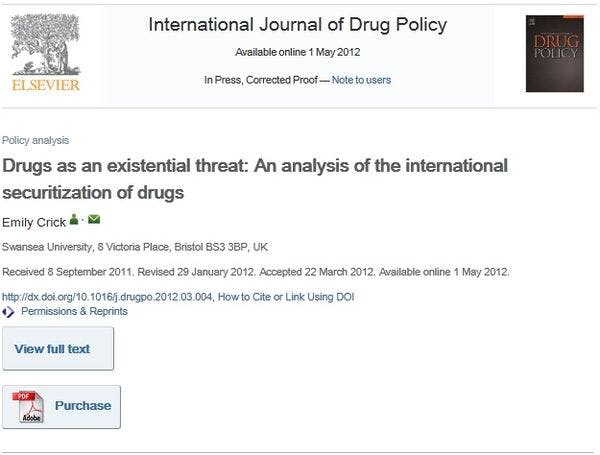Drugs as an existential threat: An analysis of the international securitization of drugs
International Journal of Drug Policy [restricted access]
The stated intention behind the establishment of the global drug prohibition regime was to protect the world from the dangers of drugs. At different points in history, drug production, use and supply have all been presented as threats to security whether human, national or international security. The international relations theory of securitization can be used as a way of explaining how and why the ‘drugs as an existential threat’ discourse holds so much power, even today. Speech acts such as the UN Single Convention on Narcotic Drugs, the UN Convention Against Illicit Traffic in Narcotic Drugs and Psychotropic Substances and Russia's ‘Rainbow-2 Plan’ clearly illustrate the development of the ‘drugs as an existential threat’ discourse at a global level with particular reference to mankind, the State and global peace and security, respectively. Analysis of these speech acts also shows how the power of the security narrative means that the global drug prohibition regime continues to remain pre-eminent despite the wealth of unintended consequences that it causes.
Keep up-to-date with drug policy developments by subscribing to the IDPC Monthly Alert.
